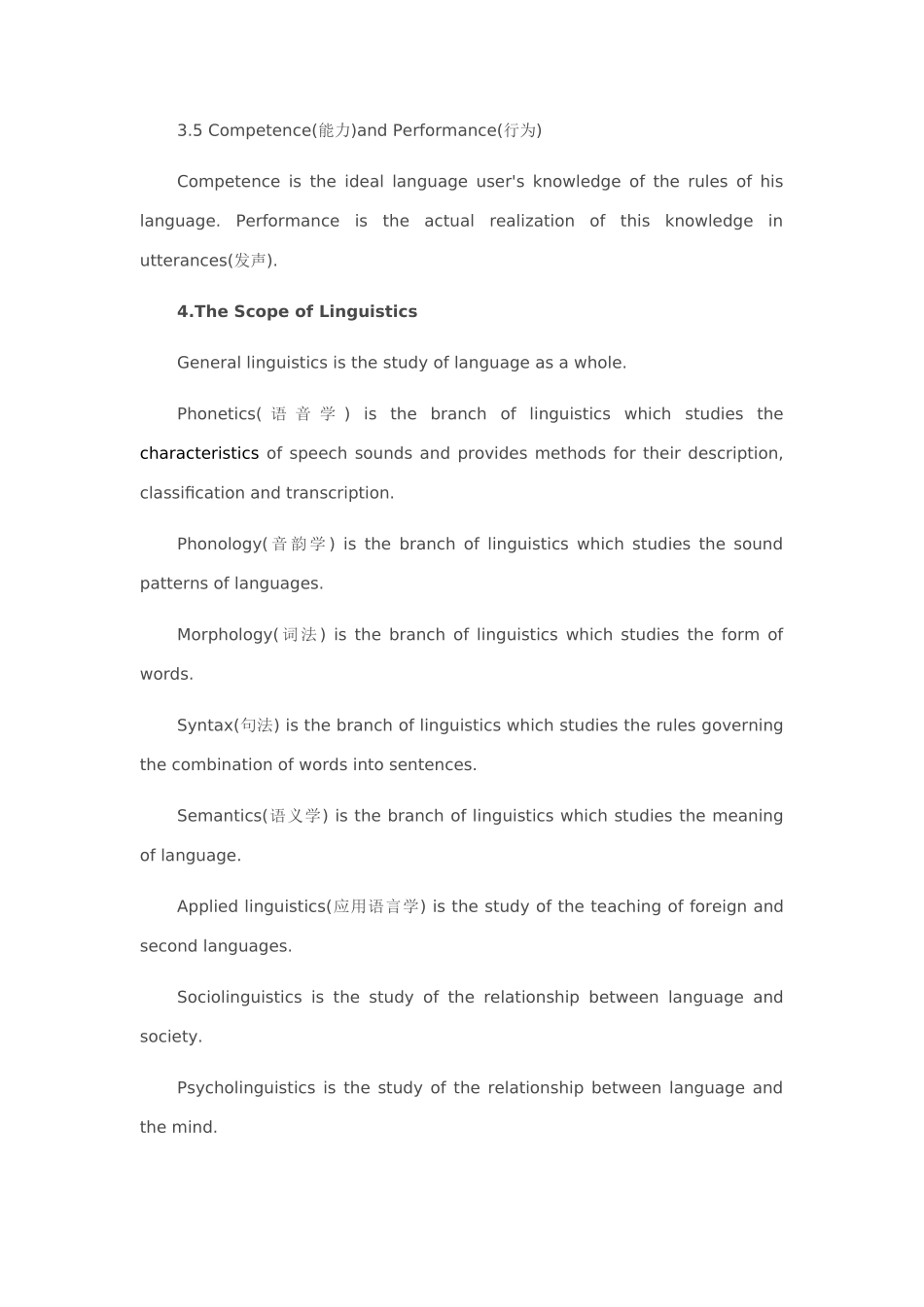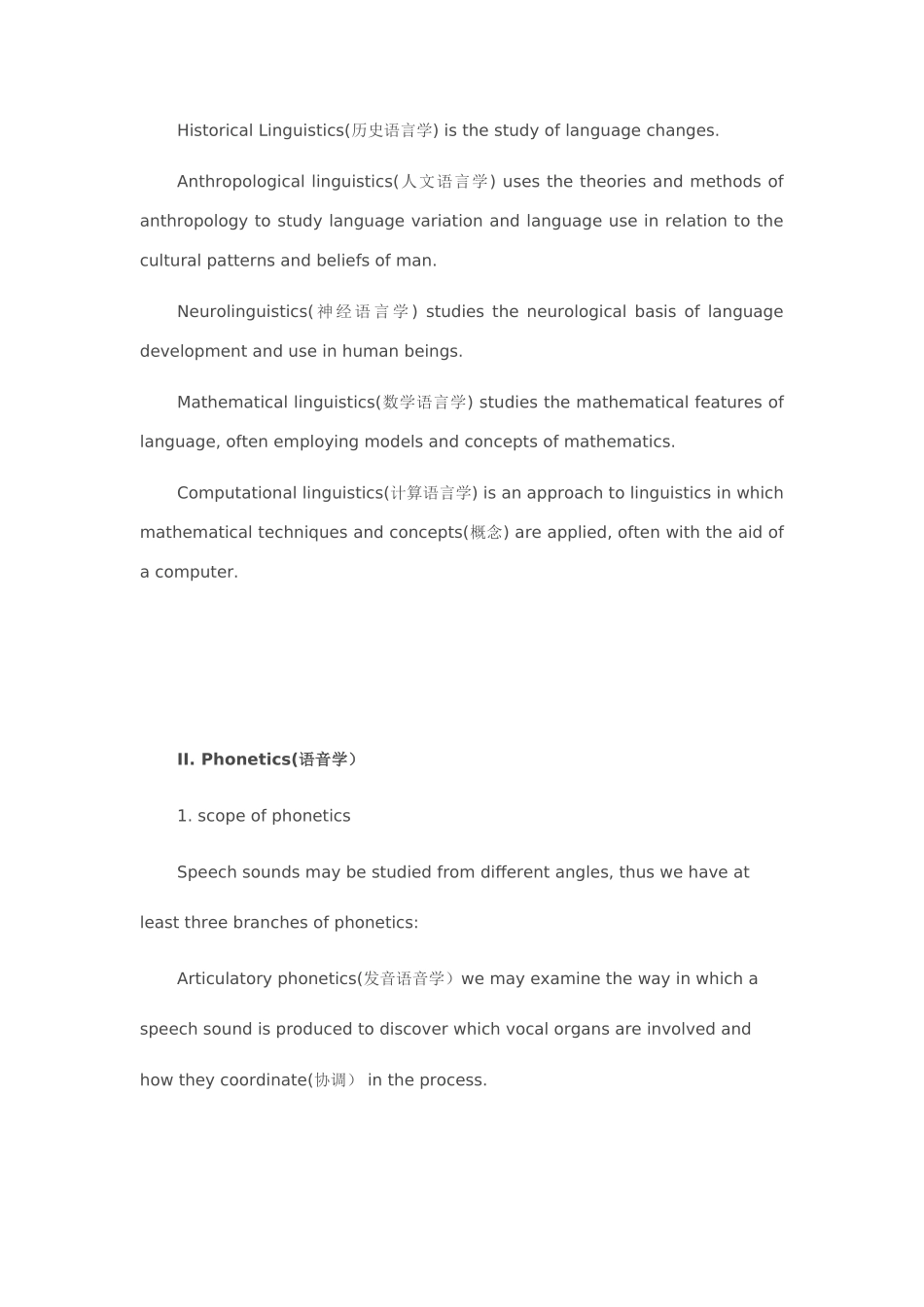I. Introduction1. What is LanguageLanguage is a system of arbitrary vocal symbols used for human communication.2. What is Linguistics(语言学)Linguistics is the scientific study of language.3.Some Basic Distinctions(辨别) in Linguistics3.1 Speech and WritingOne general principle(原则) of linguistic analysis is the primacy of speech over writing. Writing gives language new scope( 范围) and uses that speech does not have.3.2 Descriptive(描述性) or Prescriptive(阐明性)A linguistic study is descriptive if it describes and analyses facts observed; it is prescriptive if it tries to lay down rules for "correct" behavior.3.3 Synchronic(共时) and Diachronic(历时) StudiesThe description of a language at some point in time is a synchronic study and The description of a language as it changes through time is a diachronic study.3.4 Langue(语言) and Parole(言语)This is a distinction made by the Swiss linguist F.De Saussure ( 索 绪尔)early last century. langue refers to the abstract linguistic system shared by all the members of a speech community and parole refers to the actualized(实际旳) language, or realization of langue. 3.5 Competence(能力)and Performance(行为)Competence is the ideal language user's knowledge of the rules of his language. Performance is the actual realization of this knowledge in utterances(发声).4.The Scope of LinguisticsGeneral linguistics is the study of language as a whole.Phonetics( 语 音 学 ) is the branch of linguistics which studies the characteristics of speech sounds and provides methods for their description, classification and transcription. Phonology( 音 韵 学 ) is the branch of linguistics which studies the sound patterns of languages.Morphology( 词 法 ) is the branch of linguistics which studies...


